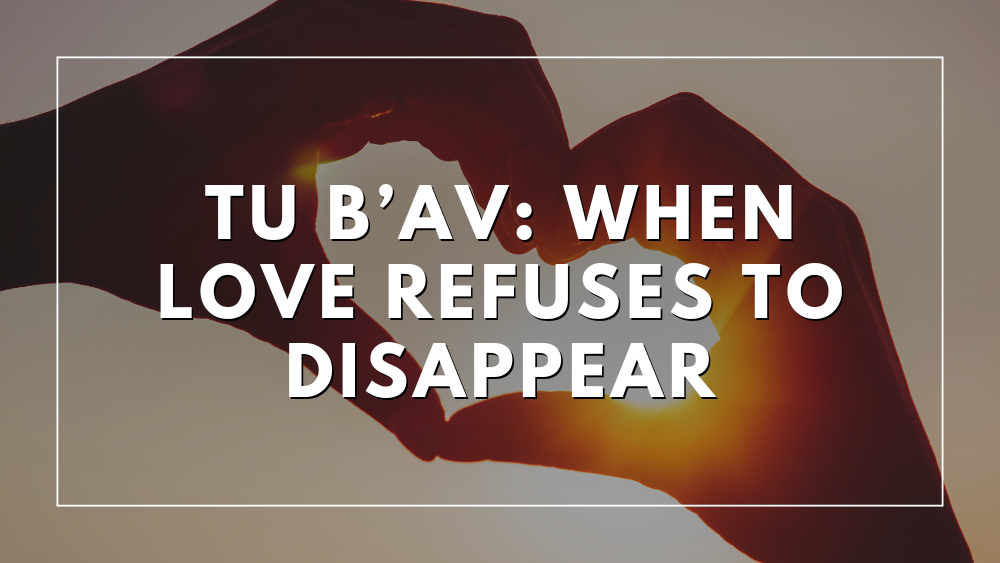
By HFI staff
As part of our ongoing desire to bring you closer to the heart of Israel, we want to share glimpses into the moments and traditions that often go unnoticed, stories that reveal not just the challenges we face, but the beauty, resilience, and soul of Israeli life.
This week, we invite you into one of the most unexpected and meaningful days on the local calendar: Tu B’Av, a quiet celebration of love, restoration, and hope, made all the more powerful in light of the times we are living in.
On a summer night in Israel, something shifts. The heat still hangs in the air, music echoes from nearby parks, and the cafés brim with conversation. But there is a gentler mood, as if the entire country is holding a collective breath, just for a moment of stillness.
This is Tu B’Av.
It comes quietly, the 15th of the Hebrew month of Av, with no religious commands, no dramatic customs. And yet, it has become known as Israel’s most tender day. A day for love, for reconnection. A day to remember that even after deep sorrow, something good can grow again.
Tu B’Av always follows Tisha B’Av, the national day of mourning. Six days after remembering the destruction of the Temple, the pain of exile, and the tragedies that have scarred Jewish history, this day arrives, full of light, laughter, and the promise of renewal.
That contrast feels especially sharp this year.
The past months have brought devastation beyond words. October 7th marked a dark rupture in our story, families shattered, dreams stolen, innocence lost. And while the world debates headlines, here in Israel, the wounds are still open.
But Tu B’Av reminds us: love endures.
More than two thousand years ago, young women dressed in borrowed white and danced in the vineyards, not to impress, but to be seen for who they truly were. The celebration was not about wealth or beauty. It was about heart, character and hope.
That same hope lives on today, not just in romantic gestures, but in something deeper.
In the resilience of couples who lost everything but choose to rebuild.
In the embrace of families who have buried sons but still hold fast to each other.
In quiet weddings under open skies. In shared prayers for a future not yet seen.
In love that stays when it has every reason to leave.
It is no surprise, then, that many couples choose to get married on Tu B’Av. Synagogues, gardens, and community halls across Israel fill with weddings, not extravagant displays, but joyful declarations that even now, love is worth celebrating.
Tu B’Av is not just about flowers and songs. It is about a love that rebuilds after destruction. A love that heals what was torn. A love that believes, still, that joy will return to the streets of Jerusalem.
And so, even in the shadow of grief, even when the headlines are grim, this small, unexpected holiday dares us to believe that life and love are not done here.
Not in this land, not with our people, and not with our story.
Because the same God who planted hope in the vineyards of ancient Israel is still writing a story of redemption today.

